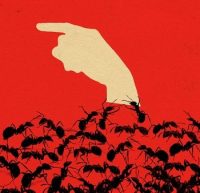
What kind of Nigeria will the Chibok girls come back to?
The news that the Nigerian government and Boko Haram had reached a deal that would secure the release of the Chibok girls was received with excitement all over the world. I landed in Nigeria the day the news broke, and my phone was flooded with texts and messages to the effect of “Have you heard?”. Then, as the days passed and the girls did not materialise, anticipation cooled into watchfulness and watchfulness soured into cynicism. “They’re always releasing false statements,” a relative of mine said the other day. “Just let us know when they get home.”
The Chibok girls have become a symbol of everything that is wrong with Nigeria.… Seguir leyendo »







